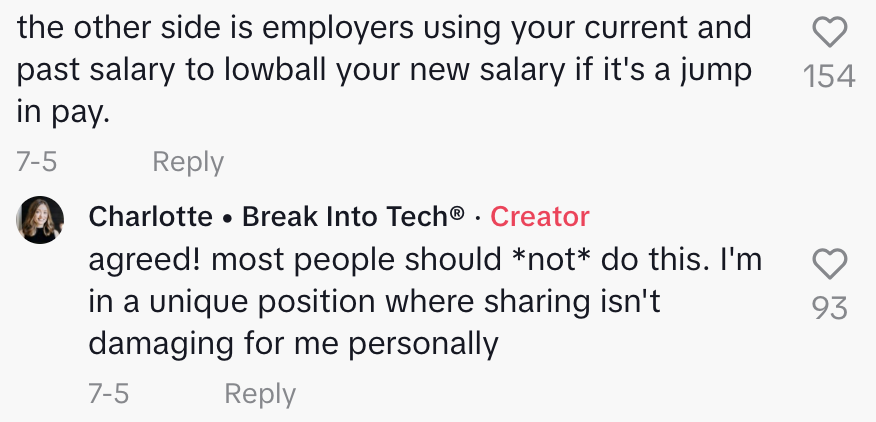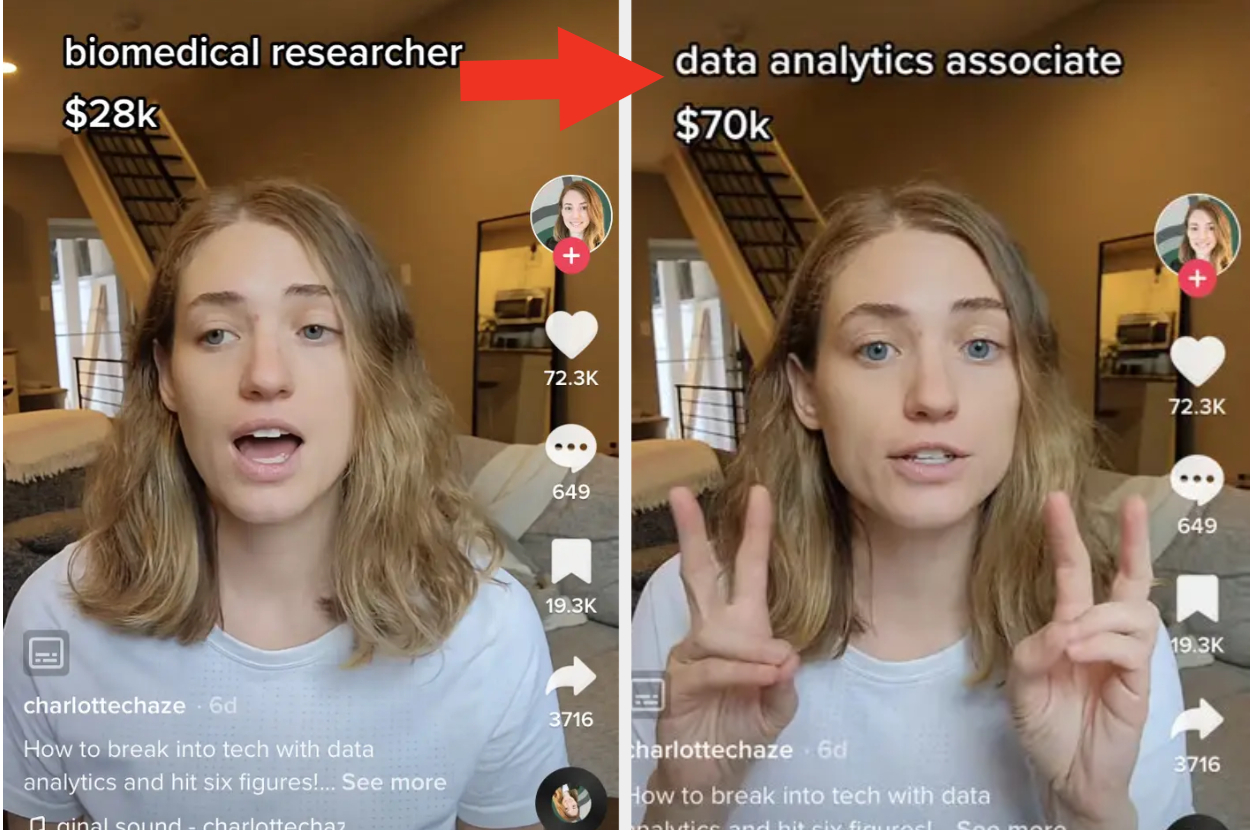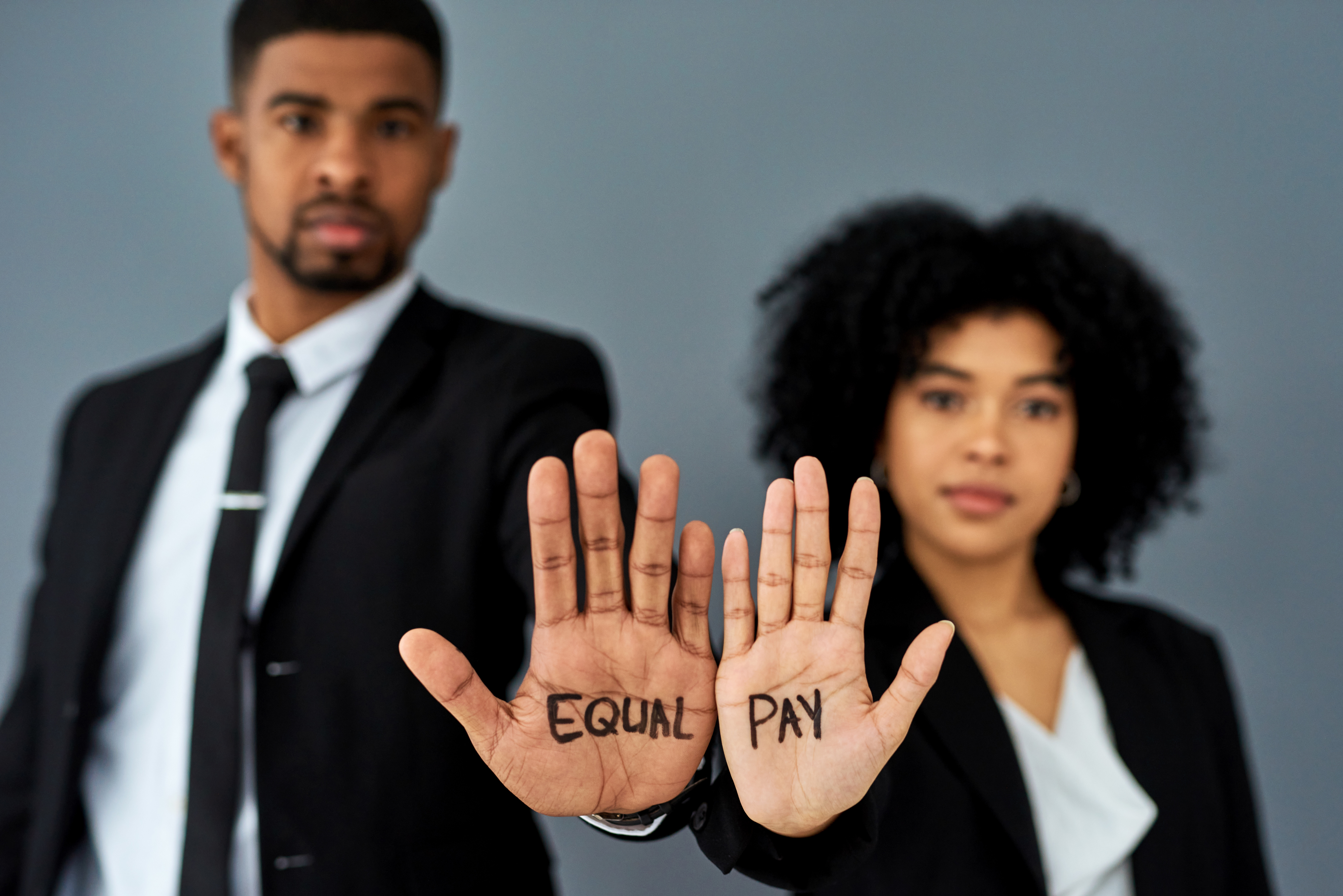Way back in the 2000s when I was entering the workforce, talking about how much you were getting paid was super taboo — and this secrecy around salaries made it really confusing to figure out how much you should ask for.
But in just the last couple of years, the conversations people are having about money have changed a whole lot. Take Charlotte Chaze (@charlottechaze), for example. She's the founder of Break Into Tech, and she stirred up a lot of conversation on TikTok by sharing why she added her whole salary history to her LinkedIn profile.

However, in the caption to the video, she wrote that you probably shouldn't try this at home. "I actually *don't* recommend doing this yourself. Showing a potential future employer what you currently make could cause them to lowball you! I'm just doing it because I can, and it's helpful for others. Use it to your advantage!"
In the comments, some people are (rightfully!) frustrated that too few employers are open about their salary ranges.

While others are just impressed that Charlotte was able to take her pay from $28k to $70k in just one job switch.

While others warned that sharing your current salary could lead potential employers to offer you less.

Charlotte told BuzzFeed that she shared this information to show others that their earning potential may be higher than they realize. "I shared my salaries because I wanted to show my personal example of going from $28k to $70k in one job change, and then to $158k just a few years later. When I was making a low salary, I never thought I'd make it to six figures, so I broke down all the salaries I made along the way to show how it can be done, even if you're starting really low. It's all about showing people what's possible as motivation to go for what you deserve."

And she also explained why she felt comfortable to reveal her entire salary history for the whole internet to see. "I'm in a privileged position to be transparent about what I've made at all of my jobs because I now work for my own business, so I don't risk getting low-balled by a future employer. The recruiters and hiring managers who have weighed in seem to agree with that idea overall, although some have suggested that your current and previous salaries shouldn't matter when you apply for a new job. I think we all agree on that, which is why I don't recommend that most people post their salaries."

Charlotte also shared that she believes salary transparency will play a big part in closing gender and racial wealth gaps and reducing income inequality. "When employees don't know what everyone is making, the rich white cis male CEOs named John win. They can pay Ariana $20k less than she deserves (and $10k less than Chad) because no one taught her that she needs to ask for the salary range in the first interview and negotiate when she gets the offer."

"Even Chad is making less than he deserves because the company has spent hundreds of thousands on research to determine the lowest possible salaries they can get away with offering: salaries that are high enough to convince the new hires to accept their offers, but low enough that the CEO can get another $1M bonus this year. Salary transparency might feel like a taboo topic, but companies are already talking about our salaries behind closed doors. Let's continue that conversation with the doors open so everyone can participate."

